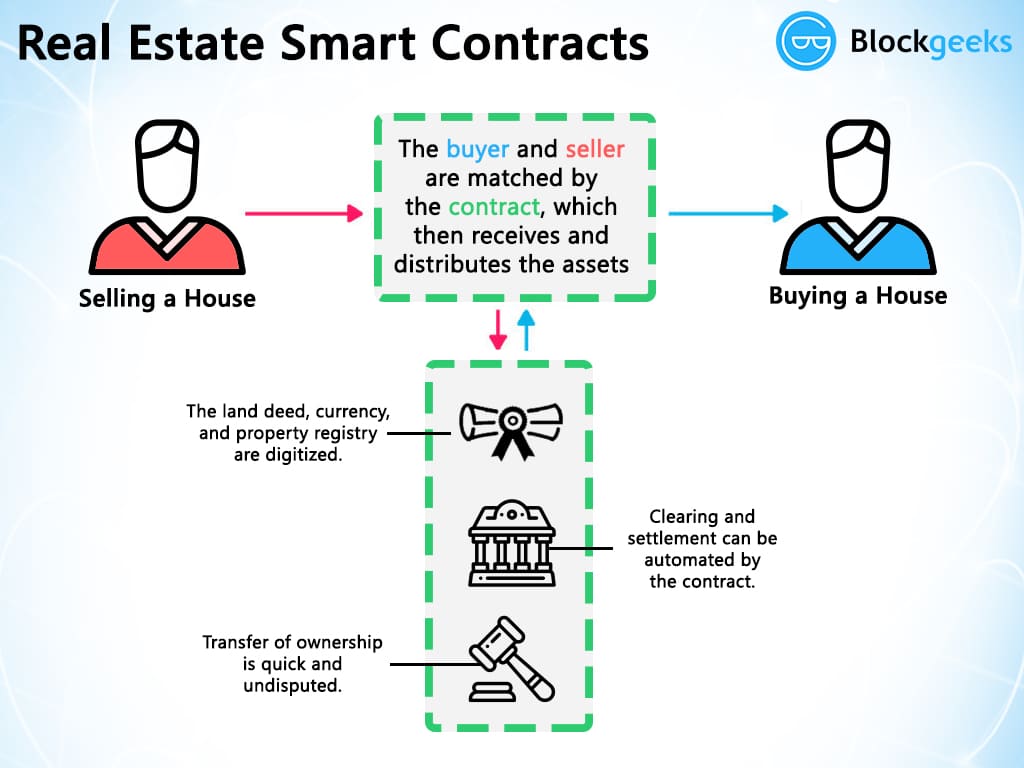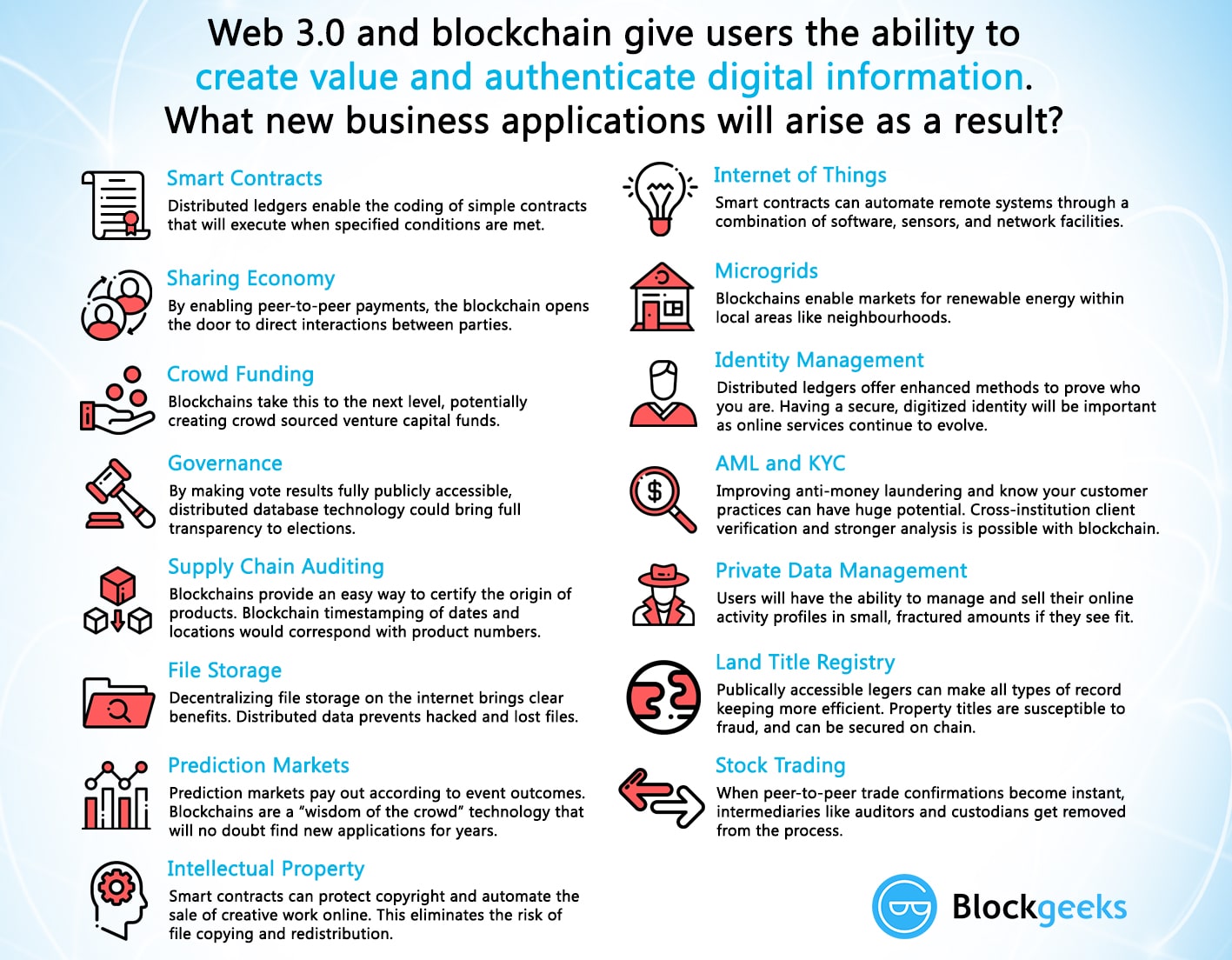Blockchain
Is Blockchain the Future? Unveiling The Blockchain Business Model in 2023

Is Blockchain the Future?
As we move into 2023, the question of whether blockchain technology is the future remains a hot topic. The sudden rise in popularity of cryptocurrency, particularly Bitcoin, in 2020 brought blockchain into the mainstream. However, the potential uses for blockchain extend far beyond just digital currency. The blockchain business model offers a new opportunity to improve legacy systems with its decentralized and immutable nature. In this article, we will explore the history, current uses, and potential future of blockchain technology.
Blockchain History Is Immutable
Blockchain technology is based on distributed ledger technology (DLT) which allows for a publicly verifiable and immutable history of events (transactions) stored on a digital ledger. The ledger is distributed across a wide network, preventing any one entity from tampering with the data. This allows for a high degree of trust in the data and opens up a wide range of potential use cases.

Why is blockchain important?
Blockchain technology has various trust properties including proof of existence, proof of non-existence, proof of time, proof of order, proof of identity, proof of ownership, and proof of authorship. These properties can be applied to existing business models that rely on third parties to facilitate trust, or to businesses where trust is implicit but not verified. In a world where trust is being eroded by data farming, privacy concerns, manipulation, and misinformation, blockchain technology offers a way to protect honest individuals and entities from misconduct and improve commercial enterprise.
The future of Blockchain
In the past, the financial services sector (fintech) was the main adopter of blockchain technology. This is due to the first iterations of blockchain (Bitcoin) having strong ties to transacting value and protecting wealth. However, as we move into 2023, we see more industries adopting blockchain technology.
Real Estate Blockchains
Blockchain technology is being adopted in the real estate industry to improve administration efficiency and transparency in property transactions. One example is the use of blockchain-based platforms like Realworks for signing leases and keeping records of property ownership. These platforms use smart contracts to automate the process of recording and verifying property transactions on a decentralized ledger. This allows for a secure and tamper-proof record of property ownership that is accessible to all parties involved, improving administration efficiency and reducing the potential for fraud. Additionally, this technology also offers the potential for tokenization of real estate assets, which opens up new opportunities for investment and liquidity.
Supply Chain Blockchains
Blockchain technology is being adopted in supply chain management to improve transparency, efficiency, and security in the movement of goods. Distributed ledger technologies allow for the tracking and recording of supply chain transactions in real-time, providing more readily available supply and demand data. This data can be kept private or partially protected, depending on the level of security required. For example, a blockchain-based platform like VeChain, allows for the tracking of products throughout the supply chain, from the point of production to the point of sale. This improves transparency, enabling companies to detect and prevent fraud, and also allows for better tracking of inventory levels, improving efficiency. Additionally, these platforms also allow for automated tracking of compliance with regulations and certifications, such as food safety or environmental standards.
Publishing Rights
The world of digital creations is rapidly expanding, and with it, the need to protect creators' intellectual property rights. This is where NFTs (non-fungible tokens) come in. In simple terms, NFTs are digital assets that are unique, verifiable and ownership can be tracked on a blockchain. Molecule recently introduced a new version of NFTs specifically designed to protect creators intellectual property rights, IP NFT v2. This new version provides an advanced level of security and support for wide range of asset types including digital art, music, videos, and more.
With IP NFTs, creators can establish proof of ownership and authenticity of their digital creations, and also preventing unauthorized usage of the creative works. Additionally, it allows creators to monetize their digital creations via sales, licensing and much more.
As digital content continues to grow in importance, it's crucial that creators have the tools they need to protect their work.
Voting on the blockchain
The use of blockchain technology in voting systems has been gaining attention in recent years as a potential solution to issues of data manipulation and system failures in electronic voting. Blockchain's decentralized and immutable nature can provide a high degree of trust in the data and ensure the integrity of the voting process.
One key advantage of blockchain voting is that it allows for secure and transparent voter authentication. This can be achieved through the use of unique identification numbers, passwords, and QR codes that are recorded on the blockchain. This ensures that only authorized individuals are able to vote, and that the votes are recorded accurately.
However, there are also concerns about the use of blockchain in voting systems. For example, a recent MIT paper highlighted the potential for a malicious system to fool voters about how their vote was actually recorded. Additionally, some experts suggest that the technology is still not mature enough to be used in high-stakes elections.
Despite these challenges, the use of blockchain in voting systems is being explored in various scenarios. In the corporate sector, many fin-tech blockchain companies have already implemented decentralized voting mechanisms for their shareholders or token holders. These mechanisms allow for voting on changes and upgrades to the platform, entity, or network.
Data Collection
The use of blockchain technology in data collection provides a new and innovative way to ensure the safety and security of personal information. With the increasing amount of data being compiled on digital ledgers, the potential for data breaches and misuse of personal information is a growing concern. Blockchain technology offers a solution to this problem by allowing for the safe collection and storage of data.
One of the key advantages of blockchain technology is that it allows for the decentralization of data. This means that data is not controlled by any single entity, and is instead spread out across a wide network of users. This decentralization makes it much more difficult for hackers to access and manipulate the data, as they would need to gain control of a majority of the network to do so.
In addition to the security benefits, blockchain technology also allows for the user to keep their personal information private, while at the same time benefiting from sharing data that may serve them. This is achieved through the use of smart contracts, which allow for the sharing of data on a conditional basis. For example, a user may choose to share their data with a favorite brand in exchange for rewards or discounts.
This new way of data collection using blockchain technology is more ethical as it puts the control of personal data in the hands of the user. They can decide what information they want to share and with whom. They also can benefit from sharing their data, as opposed to companies using their data for commercial gain. An example of a data collection web3 application is https://oceanprotocol.com/
The Blockchain Business Model in Summary
In conclusion, blockchain technology has come a long way since the advent of Bitcoin in 2009. It is clear that the potential uses for this technology are vast and varied, and as we move into 2023, we can expect to see even more adoption and innovation in this field. Whether or not blockchain is the future remains to be seen, but it is certainly a technology worth keeping an eye on.
Read Part 1 - Trust and the Simple Concepts of Blockchain Technology
Read Part 2 - Blockchain Explained - An easy to digest technical guide
Read Part 3 - Blockchain Design - Why user experience matters
You are here > Part 4 - Is Blockchain the future? Uncovering the blockchain business model
Read Part 5 - The Blockchain Generation - The path to adoption
Blockchain 101
Why did we create this 5 part series? Well it just made sense to us to join our creative ideas together. We have a passion for design and creative thinking, we have worked with different business models, technologies and ideas from around the world. The next logical step is to create a place where design thinking can be applied to blockchain methodology. For those wondering how these two topics align, this series is for you.







